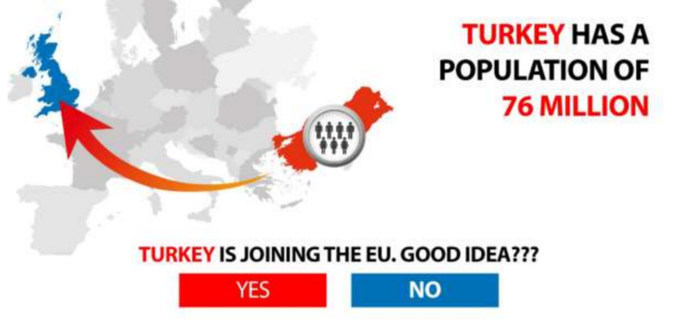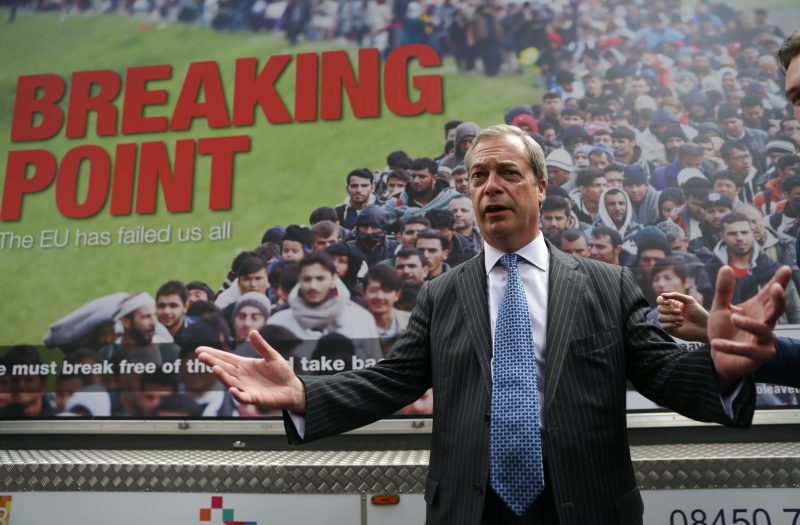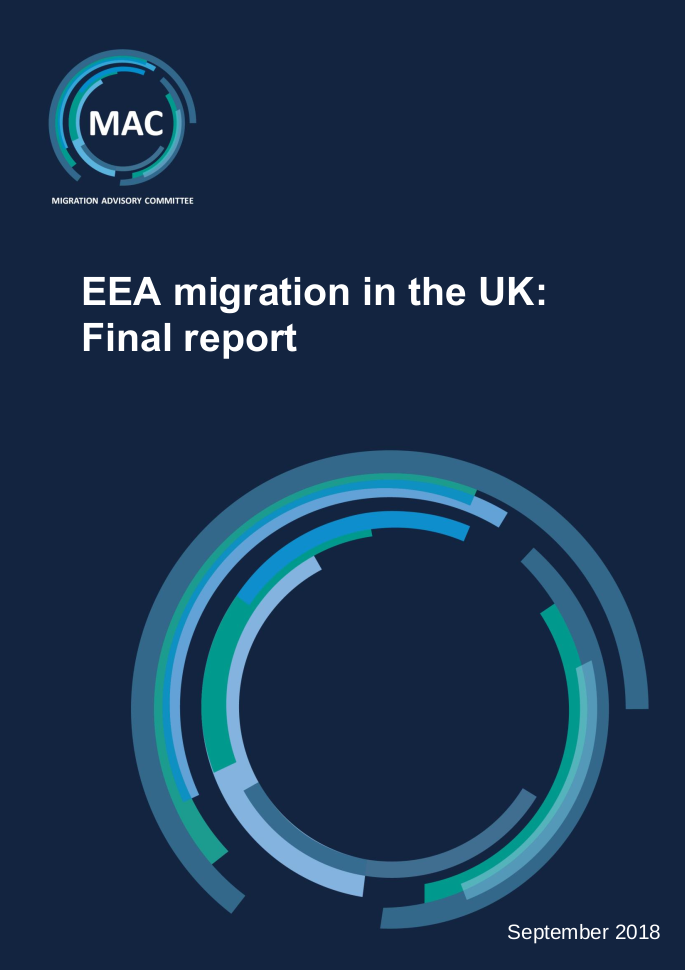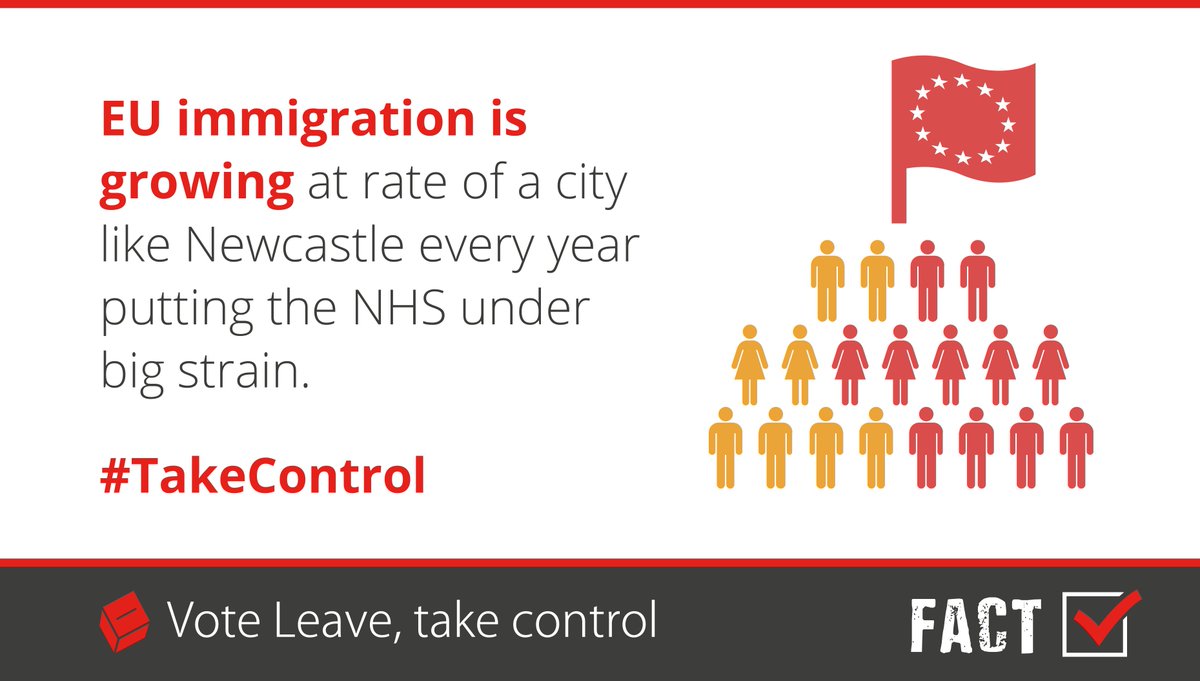Cliff Mitchell - 27/08/2019
The government’s own report shows that the scare stories promulgated by Leave campaigners have no basis in fact.

For those who voted Leave, immigration was the most cited issue facing the UK, and it was all based on lies!
It’s hard to remember now but immigration was one of the key issues in the Brexit referendum campaign and was successfully used by the Vote Leave and Leave.EU campaigns to sway voters.
On 23 June 2016 the UK voted to leave the EU. One of the main reasons given for voting to leave was the need to control immigration by taking back control of our borders. Reducing immigration was presented by the leave campaign as a win-win scenario with no downsides.
Immediately prior to the referendum, data from Ipsos-Mori showed that immigration/migration was the most cited issue when Britons were asked 'What do you see as the most/other important issue facing Britain today?', with 48% of respondents mentioning it when surveyed.
An election day poll of 12,369 voters found that one third of leave voters said the main reason was that leaving "offered the best chance for the UK to regain control over immigration and its own borders."
The fact is, and was then, that we already had complete control over the majority of immigration, which was from outside of the EU. We could also have had a great deal of control over immigration from the EU but successive UK governments had chosen not to implement the powers available to us as EU members.
What is easily forgotten is that at the time of the referendum campaign there had been no official government assessment of the economic and social impacts of immigration from the EU (or the EEA, the European Economic Area). The assertions made by the Leave campaign about the damaging effects of immigration were therefore based on little or no actual evidence, they just played to people’s emotions, wound up to fever pitch by Nigel Farage and UKIP. All of the available academic evidence pointed to EEA immigration having positive effects on the UK, contrary to the claims of Brexiteers.
On 29 March 2017, 9 months after the referendum, parliament voted to trigger Article 50 and officially start the 2 year process of leaving the EU on 29 March 2019.
 On 27 July 2017, Amber Rudd the then Home Secretary succumbed to public and political pressure and announced the independent Migration Advisory Committee was to carry out a detailed analysis of the economic and social contributions and costs of EU citizens in Britain. The committee would not, however, report until September 2018, 7 months before the formal leaving data, and far too late to have any meaningful impact on the Brexit process.
On 27 July 2017, Amber Rudd the then Home Secretary succumbed to public and political pressure and announced the independent Migration Advisory Committee was to carry out a detailed analysis of the economic and social contributions and costs of EU citizens in Britain. The committee would not, however, report until September 2018, 7 months before the formal leaving data, and far too late to have any meaningful impact on the Brexit process.
In September 2018 the Migration Advisory Committee published its final report. It’s publication went largely unnoticed, overshaddowed by Theresa May’s Chequers plan, the Salzburg summit and associated press frenzy.
Given the importance of immigration as an issue in the whole Brexit campaign and its influence on the referendum result, it is important to understand the reality – were the Brexiteers right in claiming immigrants were taking our jobs, reducing our wages, swamping our NHS and social services? No! The government’s own report, commissioned by the Conservative Home Secretary, Amber Rudd makes it clear that EEA immigration has had little or no negative economic or social impact on the UK.
It’s a lengthy and detailed report, but the key conclusions are:
- EEA migrants have no or little impact on the overall employment and unemployment outcomes of the UK-born workforce.
- Migration is not a major determinate of the wages of UK-born workers.
- Immigration has a positive impact on productivity.
- High-skilled immigrants make a positive contribution to the levels of innovation in the UK.
- There is no evidence that migration has had a negative impact on the training of the UK-born workforce. Moreover, there is some evidence to suggest that skilled migrants have a positive impact on the quantity of training available to the UK-born workforce.
- There is some evidence that migration, particularly from New Member States (NMS) and non-EEA, has reduced prices of personal services.
- Migration may have increased house prices in some areas but the impacts of migration on house prices cannot be seen in isolation from other government policies. The impact of migration may be higher in areas with more restrictive planning policies in which it is harder for the housing stock to increase in line with demand.
- EEA migrants pay more in taxes than they receive in benefits.
- EEA migrants contribute much more to the health service and the provision of social care in financial resources and through work than they consume in services.
- Social care will struggle to retain enough migrants in the sector if work in it is not made more attractive.
- There is no evidence that migration has reduced parental choice in schools or the educational attainment of UK-born children.
- Migrants are a small fraction of people in social housing.
- Migration does not impact crime and there is no evidence to suggest that migrants are linked to any increases in crime in England and Wales.
- There is no evidence that migration has reduced the average level of subjective well-being in the UK.

This is important!
The government’s own report shows that the scare stories promulgated by the Leave campaigners have no basis in fact. They were just scare stories, made up for political gain and to influence the result of an unnecessary referendum. Recall that immigration was the most cited issue facing the UK by those who voted Leave, and it was all based on lies and misinformation. Immigration hardly gets a mention now by Brexiteers – after all, why let facts get in the way of a winning story.
Credits
Cliff Mitchell
 ourEU.UK
ourEU.UK